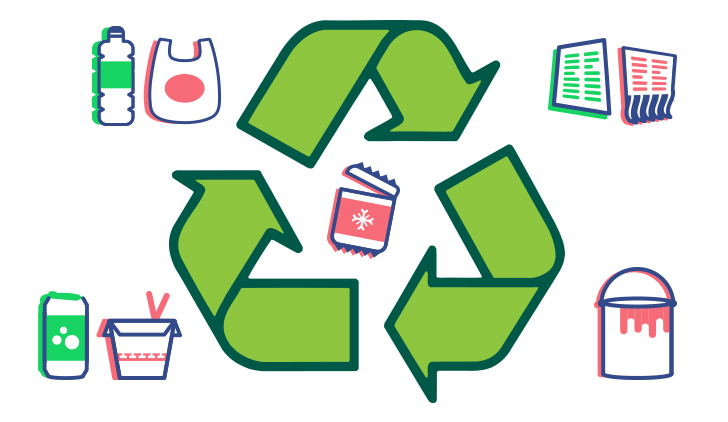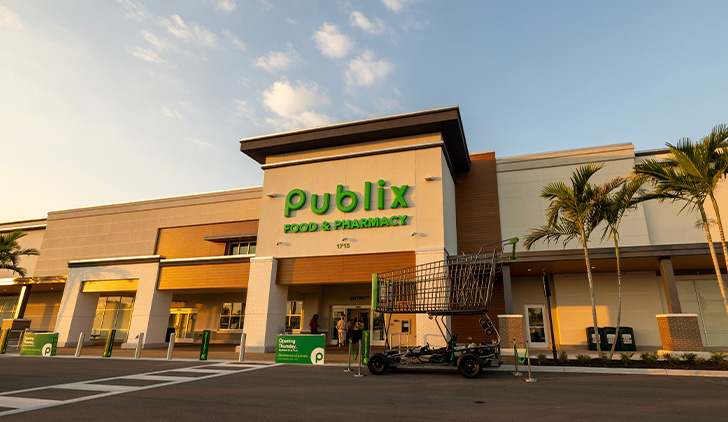
More than 60 percent of items found in America’s landfills could have been recycled.
Some items were treated like trash while others were intended for recycling. So, how did they end up there?
They became contaminated.
To make sure your efforts to protect the environment don’t end up wasted, keep an eye out for these five common contaminants.
Mixing soft plastics like plastic bags with hard plastics like water bottles.
Make sure plastic materials like shrink wrap, newspaper bags and plastic grocery bags are kept separate from other recyclable materials. To recycle soft plastics, deposit them in your Publix customer recycling container at the store entrance. Recycling plastic bags in your curbside container can lead to contamination and damaged equipment at the sorting facility. Generally, hard plastics can be recycled through your city or county curbside pickup program, but it’s important to always check before placing them in a recycle bin.
Hazardous waste
It may seem like a great idea to recycle a metal paint can or an empty pesticide container, but you should always rinse the container and check with your city or county recycling program to see if the items are eligible.
The best way to avoid contamination is to learn more about your recycling provider’s processes and remember to keep it clean and keep it separate.
Frozen food containers
The shiny, exterior coating used on frozen food boxes prevents freezer burn, but it also prevents the paper from being recyclable.
Loose shredded paper
Recyclers look for long paper fiber that can stand up to multiple recycling cycles. When shredded paper is mixed with non-shredded paper, it’s difficult to separate the two. Keep shredded paper separate from regular paper by placing it in a separate receptacle or in a clear plastic bag.
Food waste
Paper-based take-out containers and cardboard pizza boxes often contain grease or food particles and shouldn’t be recycled because they can contaminate an entire load of cardboard. Make sure to rinse recyclable cans and jars.
Are you ready to make a difference?
More than 75,000 Americans have already pledged to focus their efforts on celebrating and promoting recycling during America Recycles Day on Nov. 15. It’s not too late to join the fun! Visit americarecyclesday.org to make an individual pledge to recycle more, locate an event near you or find tools to help you organize your own event.


